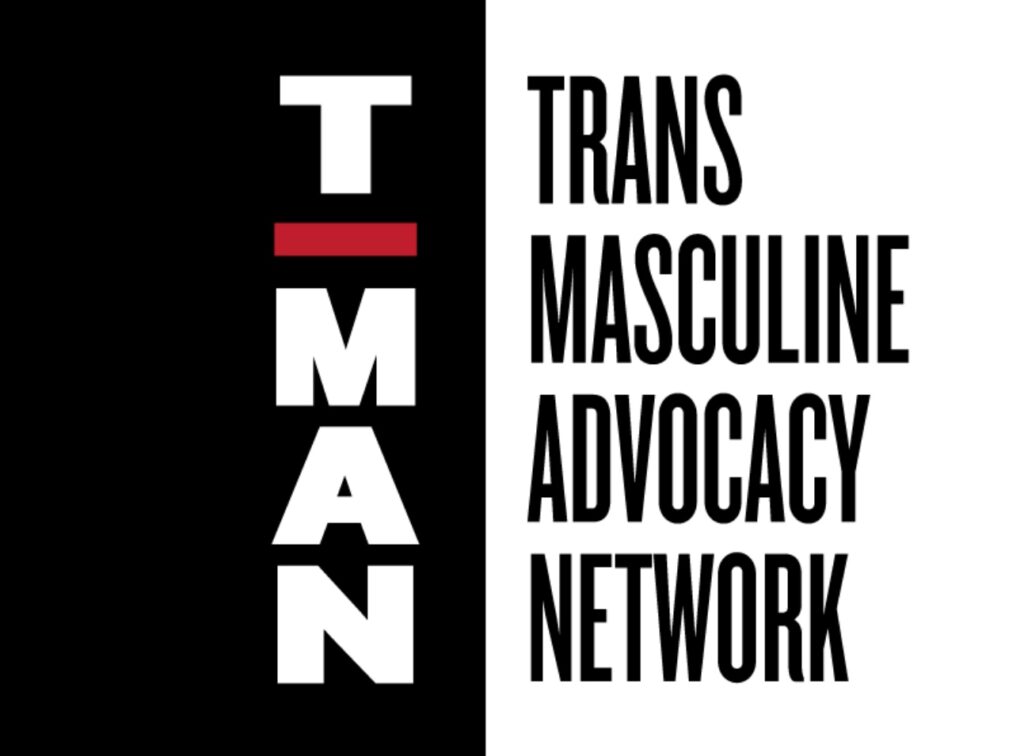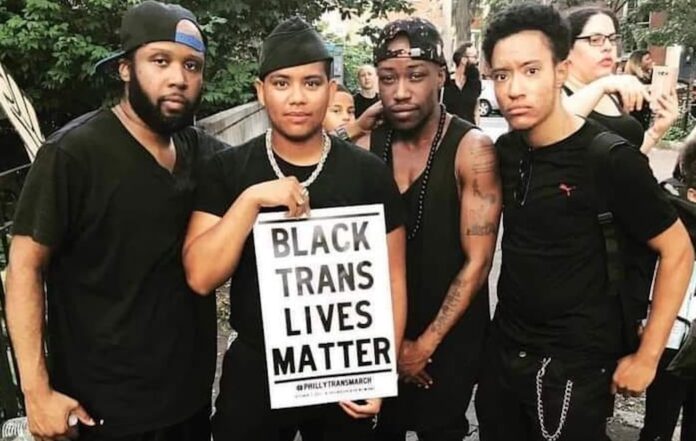In honor of Black History Month, members of the Trans Masculine Advocacy Network (TMAN) held the virtual event “Honoring Our Black History.” TMAN facilitator Christian Lovehall and long-time TMAN member Leo Watts discussed the origin of TMAN, the work that TMAN members have done and continue to do, and the importance of creating a space that uplifts Black trans men and trans youth of color.
“Oftentimes, there aren’t many moments where we celebrate or honor the contributions of Black trans men in our city,” Lovehall said at the event. “Oftentimes, queer and trans leaders are not acknowledged or recognized and celebrated in mainstream Black History Month celebrations. TMAN has always been intentional about remembering our queer and trans leaders, giving them their roses, and just taking time to reflect upon those who have paved the way for us.”
Watts talked about how he first came to be involved in TMAN when the network was just getting off the ground in 2006. He discovered TMAN when he attended the Philadelphia Trans Wellness Conference that year and someone gave him a flier advertising the group’s first meeting.
“There wasn’t really anything available for people of color,” Watts said at the event. “As far as trans services, they had programs, but most of them were predominantly white, or actually all white. I felt that there wasn’t really a connection that I could benefit from. So that was why it was created, to give that access and to facilitate a brotherhood.”
At the time, TMAN offered weekly support groups, training sessions for healthcare professionals and organizations, help finding jobs and housing, referrals for hormone replacement therapy and name changes, “basically anything that helped us succeed as Black trans men in Philly,” Lovehall said at the event. “No other group was doing that.”
Since its inception in 2006, TMAN remains the only group in Philly for Black trans men or trans men of color. Lovehall addressed this issue at the event.
“I think there is an unspoken fear in the LGBTQ community collectively to uplift Black trans men,” he said. “I think it’s rooted in the fear that general society has when it comes to creating spaces for Black men, period – whether you’re cis or trans.”

Lovehall posited that another reason that TMAN is the only local group of its kind has to do with the ease, or lack thereof, of securing grant money for a group dedicated to trans men of color.
“Sometimes you need affinity groups to address certain issues, to talk about certain things in a safe manner,” Lovehall said. “As LGBT-friendly as our city claims to be — with all the nonprofits that are in existence and all the resources that we seemingly have access to, Black trans men still only have one resource that they can really depend on to show up and be affirmed as themselves.”

Lovehall and Watts discussed the work that they’re proud of that they’ve done through TMAN. Watts cited traveling to different U.S. cities in the early days of the group as an activity that helped TMAN members connect and bond. He also talked about his work helping to form a track for trans people of color at the Philadelphia Trans Wellness Conference.
“It really helped [the conference] grow with the people that attended,” Watts said at the event.
When Lovehall became facilitator of TMAN in 2016, he strove to foster a space that embraced Black trans men of all backgrounds and identities. “My focus was one’s Blackness,” Lovehall said at the event. “I just wanted Black trans men and trans men of color to come together and be supportive of one another, and be able to celebrate our differences. At the end of the day we are not a monolith, we’re all very, very different.”
As facilitator, Lovehall expanded the group’s advocacy work by organizing rallies and demonstrations, and supporting the community in different ways — such as helping to clean at Morris Home annually — as well as supporting families who lost Black trans loved ones. Lovehall also made a point to facilitate “unapologetic” conversations that were at times uncomfortable.
“I didn’t want us to repeat cycles of toxic masculinity that are so prone to Black cis men and cis men of color,” Lovehall said. “I really wanted to be intentional about having transparent and honest conversations, where we can define masculinity for ourselves in a healthy way.”
The TMAN work that Lovehall is most proud of, he said, is the training sessions he and his comrades facilitated in schools like Temple and UPenn for teaching medical students best practices in trans competence when treating trans patients. TMAN members would frequently train healthcare professionals who were already seeing trans patients, so it was important to be able to train students before they reached healthcare settings. Plus, TMAN members carried out training sessions in schools for foster parents who had or would be welcoming a young LGBTQ person.
“[That was] just as impactful because we have to protect our youth,” Lovehall said. “They’re not often able to advocate for themselves.”
Going forward, Lovehall and TMAN members plan to hold in-person meetings and events this year, create new social media accounts and a website to up the group’s online visibility and expand their reach, and plan TMAN’s first ever retreat. The group also intends to focus on fostering more spaces for Black and Brown trans masculine youth, continuing to do advocacy, and potentially collaborating with other organizations. Lovehall pointed out that TMAN is a grassroots organization, not a nonprofit, so the group hopes to raise funds to continue to support their work.
“We charge those in attendance to continue to uplift this group and this organization, and to tell the story of a group of Black trans men who came together to support one another, to create societal change in the city and overall to make it safer for Black trans men in Philly,” Lovehall said at the close of the event.
He addressed a misunderstanding about Black trans men, that because they are men or may be perceived to be cisgender men, that they are safe when they walk through this world.
“[People think that] once we are cis-assumed, everything just falls into place, we have privilege and we’re not in danger of anything,” Lovehall explained. “But if anybody knows anything about the experiences of Black men in America, you know that we are not safe. To be seen as a Black cis man puts us in danger in different ways that a lot of times people in our community don’t think of. [That] is why TMAN is so important, because we have to clear up a lot of the misconceptions about the experiences of trans men of color and Black trans men.”
In addition to giving himself and Watts their due roses, Lovehall took a moment to uplift Rev. Louis Mitchell, a trans elder who has done substantial activism and advocacy work in Philadelphia and beyond.
Donations can be made to TMAN via PayPal at [email protected].
